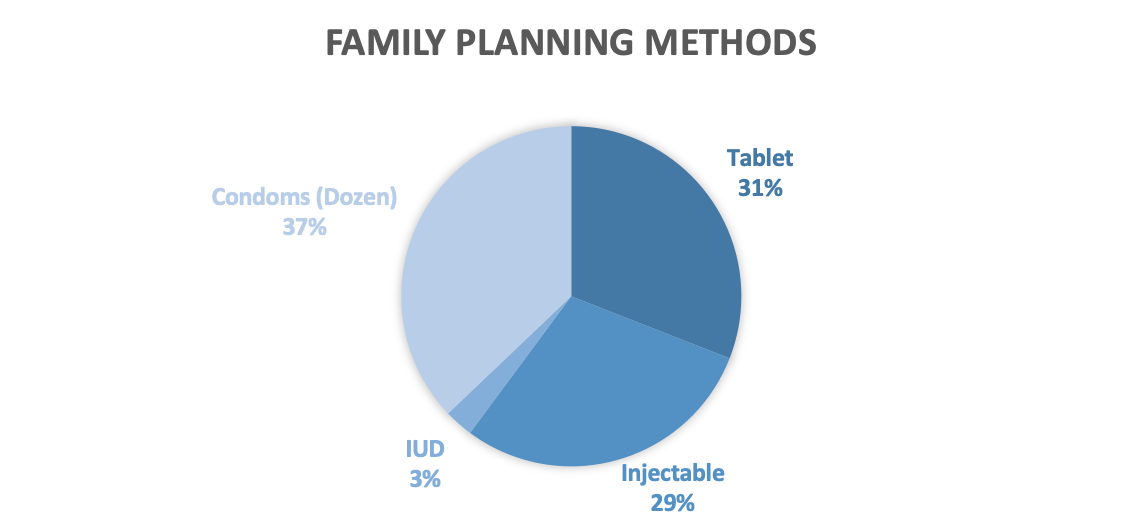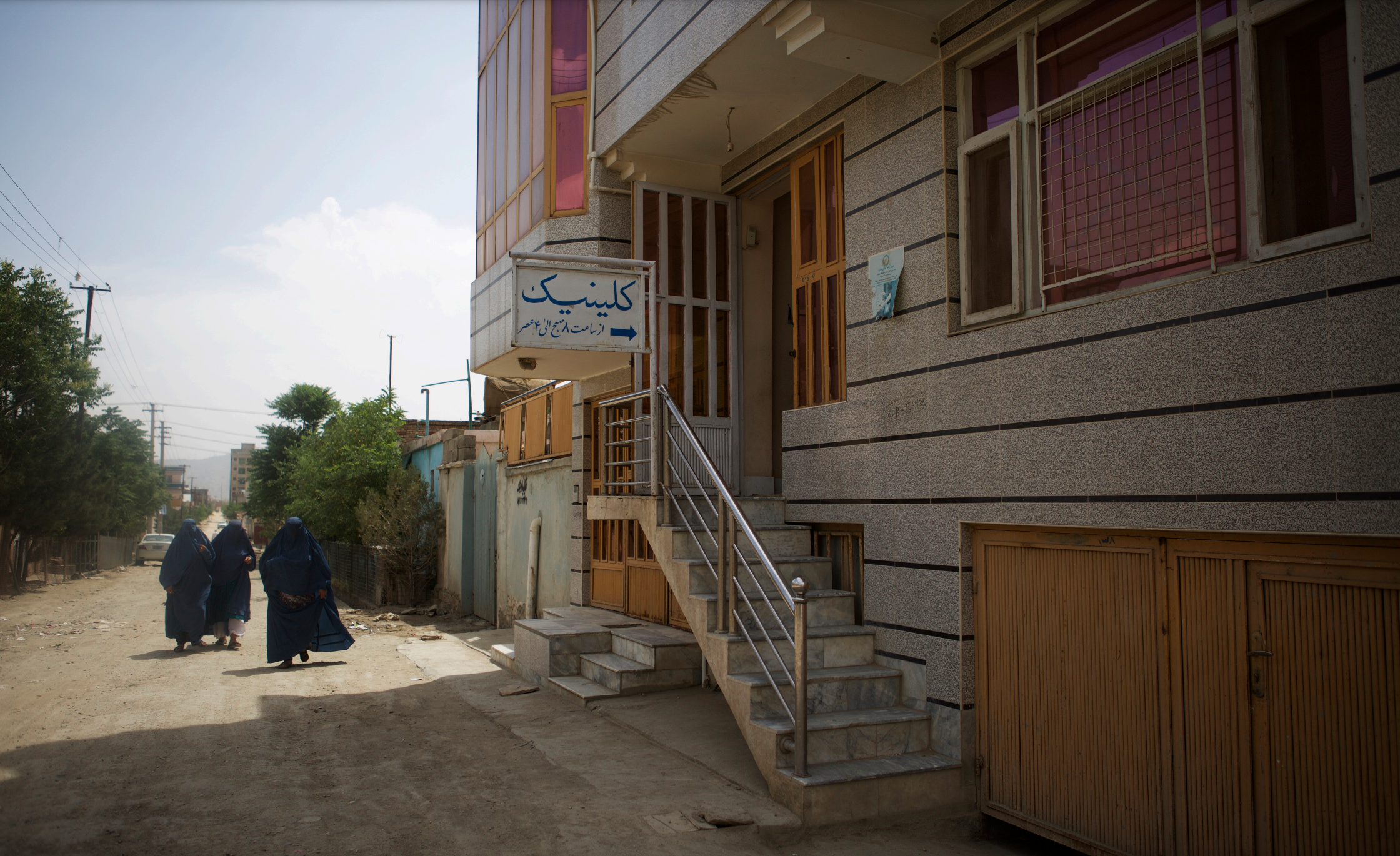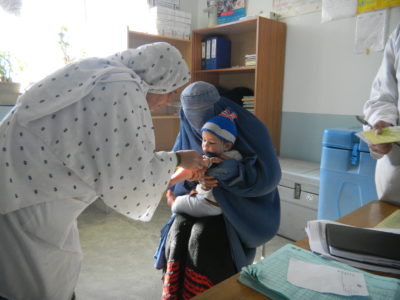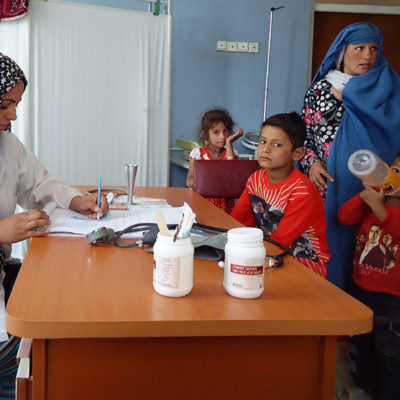Location - Kabul
Focus - Health
In 2013, Action for Development (AfD) established the Shaheed Abdul Razaq Primary Health Center in Khawja Bughra District, located in the north of Kabul. The area was characterised by poor health indicators, lacked access to a nearby health service (nearest 2 hours by foot), and was in close proximity to the main road leading north of the country, enabling access to populations outside of Kabul province as well. The primary health center serves as the first point of contact for 60,000 people and employs 11 staff members, including female medical personnel. The center provides crucial services for maternal and child health, including family planning, ante/post-natal care, nutrition screening, micronutrient supplementation, and vaccination. It also offers an OPD service, an on-site laboratory, an ultrasound facility, and a pharmacy, and provides training and capacity building to community health workers.
Shaheed Abdul Razaq Primary Health Center is the first port of call for 60,000 people. Currently, the Center employs 11 staff members including female medical personnel. It provides essential services for maternal and child health, including family planning, ante/post-natal care, nutrition screening, micronutrient supplementation, and vaccination. The center also provides an OPD service with an on-site laboratory, an ultrasound facility and pharmacy. In addition, it provides training and capacity building to community health workers.
Primary Health Centers and Facilities are a critical element of the health architecture as they not only refer patients effectively to tertiary care (hospitals) when necessary but also reduce the load on a very strained tertiary health system by triaging less complex and critical cases. AfD's health center is a critical element in providing healthcare services to vulnerable populations. Patients are charged 50 Afghani (Afs) per OPD service received and laboratory examinations, and 60 Afs for an ultrasound. Family planning and vaccinations are provided free of charge. The income raised is used to support the running costs of the center; currently, 99% of the running costs are recovered. AfD’s health center services are 10-20% of the cost of for-profit private clinics charges. It is noteworthy that since the Taliban regime and consequent withdrawal of international funding, AfD has for the most part been able to maintain its services, unlike many public health facilities.
During the first quarter of 2023 (Jan-Mar) the center provided 12’620 health services to vulnerable populations, with women receiving sexual and reproductive health care. Additionally, 1734 children were screened for malnutrition, 4673 vaccines were administered, and 1178 laboratory tests were carried out. Furthermore, AADA (Agency for Assistance and Development of Afghanistan) is providing treatment on-site for children with severe acute malnutrition (SAM). The chart below provides an overview of the percentage of services provided across the various health service departments in the health facility.
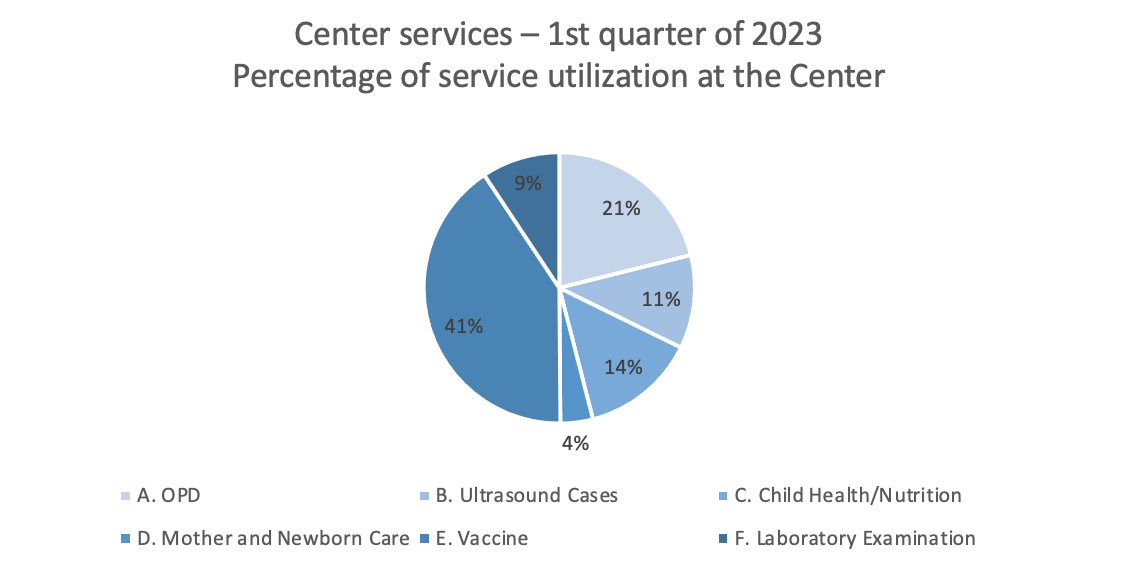
Between January and March 2023, the OPD delivered 2664 consultations to patients suffering from a range of illnesses. The majority (1117) were provided for people suffering from acute respiratory tract infection (ARI) (cough and cold, Ear, Nose and Throat disease and pneumonia). The patients also mainly consulted for gastroenteritis (263), pelvic inflammatory disease (221), urinary tract infection (179), anemia (172) and diarrhea (167). The majority of patients above 5 years old were female, 83.7%, and 28.4% of the total of patients were children under 5 years old.
In the first quarter of 2023, 1734 children under 5 were screened for acute malnutrition. Out of the children screened, 9.3% were diagnosed with moderate acute malnutrition and 5.8% with severe acute malnutrition. AADA carries out the screening and treatment services and the children diagnosed for SAM were treated by AADA using Plumpy'Nut – a Ready-to-Use Therapeutic Food. All parents of MAM children were referred to their nearest health facility providing MAM support and were given nutrition counselling to help support their child. The figure below shows the breakdown of diagnosis between genders.
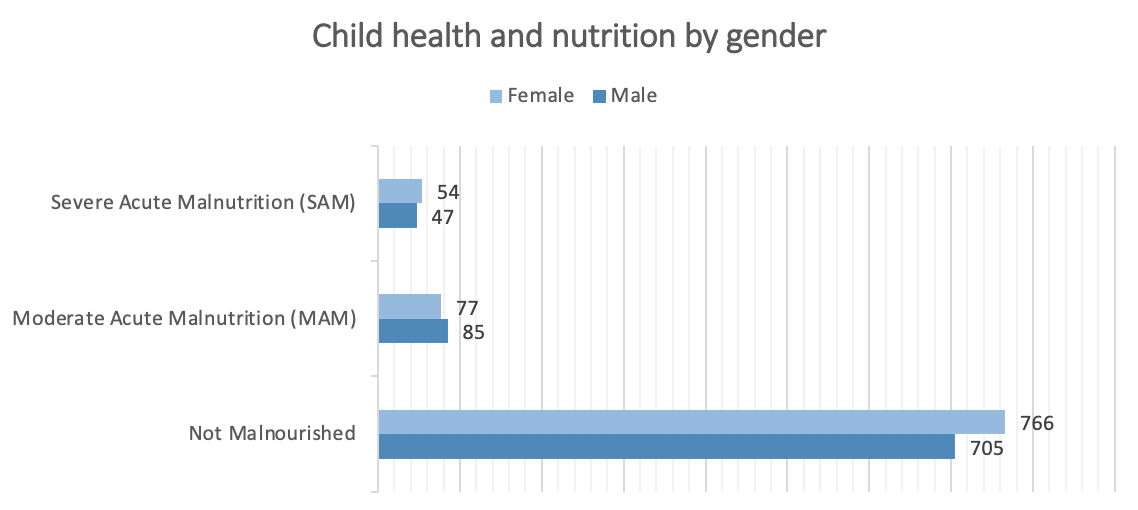
Malnutrition is a prevalent problem in Afghanistan and is exacerbated by water scarcity, and spikes in food prices. According to the World Food, Programme, 19.9 million people face acute food insecurity, of which 6 million face emergency-level food insecurity. In addition, 54% of children under 5 suffer from chronic malnutrition (WFP, 2023).
Family planning services are also provided at the health center, with a total of 401 services were administered during the first quarter of 2023. Forms of family planning services provided include injectable and Intra Uterine Device (IUD), in addition to tablets and condoms distribution. The Ministry of Public Health (MoPH) is the main source of funds for family planning services. The primary contraception method provided is condoms, followed by tablets, injectable, and finally IUD as shown in the figure below.
